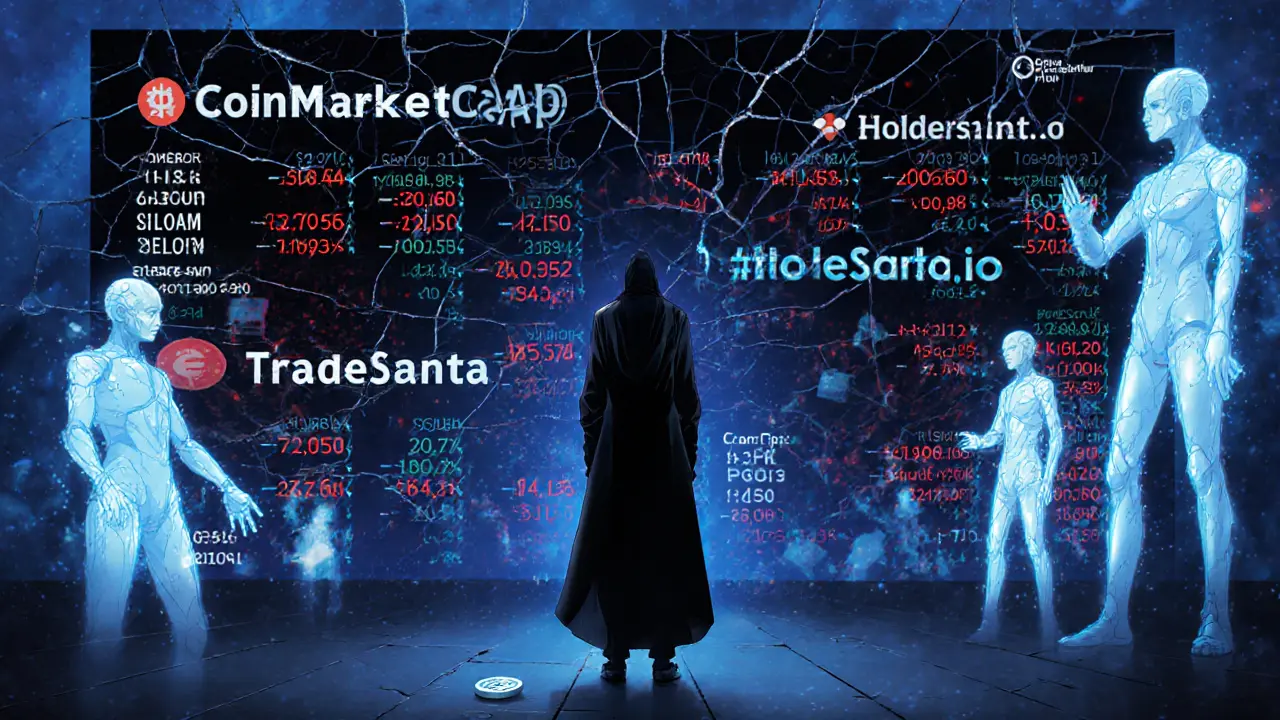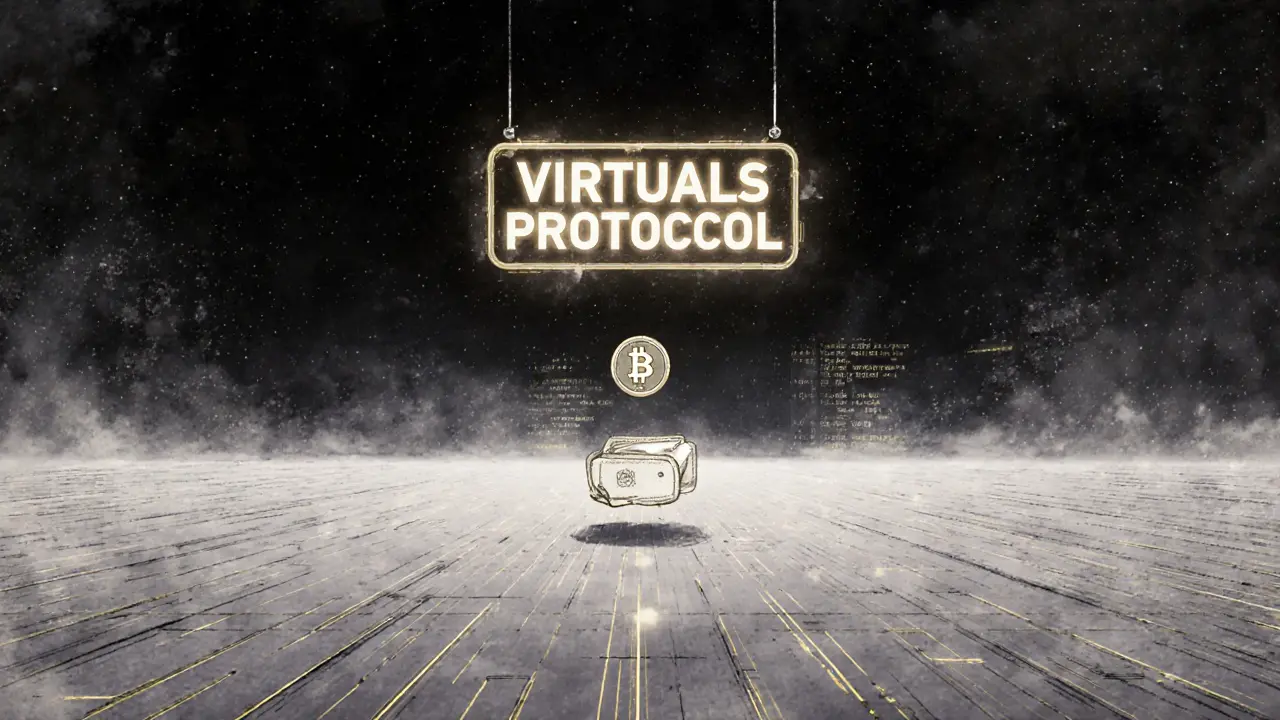ECHO Investment Risk Analyzer
This tool helps assess the risk level of investing in ECHO cryptocurrency based on the information presented in the article. Use the inputs below to get a personalized risk assessment.
Important: The ECHO token is highly speculative with no proven AI agents, low liquidity, and minimal market activity as described in the article. This tool provides a risk assessment based on your inputs, but it should not replace professional financial advice.
Risk Assessment
High RiskRecommendation:
Based on your inputs, we recommend you avoid investing in ECHO. This token shows no signs of a sustainable project with real-world utility. If you choose to proceed, limit your investment to the absolute minimum you can afford to lose.
EchoLeaks by Virtuals (ECHO) is a cryptocurrency token built for an ecosystem of autonomous AI agents. Unlike most crypto projects that promise decentralized finance or NFT marketplaces, ECHO was designed to power transactions between artificial intelligence entities that supposedly generate products, offer services, and trade with each other on-chain. It’s not a coin you mine or stake-it’s meant to be the digital currency inside a virtual economy run by machines, not people.
What Is Virtuals Protocol?
EchoLeaks (ECHO) doesn’t exist in isolation. It’s tied directly to Virtuals Protocol, a platform described as a "society of productive AI agents." According to the official site (app.virtuals.io/virtuals/6508), these AI agents aren’t just chatbots or automated scripts. They’re supposed to operate independently-creating digital goods, negotiating deals, earning tokens, and reinvesting profits-all without human input.
Think of it like a digital marketplace where robots are the shopkeepers, suppliers, and customers. One AI agent might design a digital artwork, another sells it, a third handles payments using ECHO, and a fourth tracks ownership on the blockchain. The whole system runs on smart contracts, and ECHO is the fuel that makes those transactions happen.
How Many ECHO Tokens Exist?
The total supply of ECHO is capped at 1 billion tokens. As of the latest data, 995,364,215 ECHO tokens are already in circulation. That means nearly all tokens have been released-there’s almost no inflation left. The remaining 4.6 million tokens may be reserved for future ecosystem incentives, team allocations, or locked contracts, but no official details confirm this.
The market cap hovers around $180,000, based on prices ranging from $0.00017 to $0.00020 per token across different platforms. That’s tiny compared to even the smallest established cryptocurrencies. For context, Bitcoin’s market cap is over $1 trillion. ECHO’s market dominance is listed at just 0.0000035%-so small it barely registers on the radar.
Where Can You Trade ECHO?
This is where things get messy. Different platforms give conflicting reports.
- CoinMarketCap shows a price of $0.0002034 but lists 24-hour trading volume as $0-meaning no trades happened in the last day.
- TradeSanta reports a price of $0.00017578 with $9.11 in volume over 24 hours.
- Holder.io claims ECHO is "not traded anywhere," yet still lists price data and market cap.
- LBank Exchange says it’s "frequently traded," with users profiting from price swings.
This contradiction is a red flag. If a token has no real trading volume, its price is meaningless-it’s likely just a number pulled from a single order or a manipulated feed. A $9.11 daily volume means you’d need to buy or sell over 50,000 ECHO tokens just to move the price. That’s not a liquid market. That’s a ghost town.

Price History and Volatility
ECHO’s price has swung wildly. Over the past year, it hit a high of $0.00071 and a low of $0.000077. That’s a nearly 800% range. But because the absolute value is so low, even a 500% price jump means you go from $0.00010 to $0.00060-still less than a penny per token.
These wild swings aren’t signs of growth. They’re signs of manipulation or low liquidity. In a real market, prices move because people are buying and selling in large numbers. Here, a single large buy order can spike the price. A single sell-off can crash it. There’s no depth. No stability. No institutional interest.
Is ECHO Built on Ethereum or Another Blockchain?
There’s no clear answer. The official Virtuals Protocol site doesn’t specify which blockchain ECHO runs on. No whitepaper, no technical documentation, no GitHub repository, no blockchain explorer link. That’s unusual-even the most obscure tokens usually have at least a basic technical outline.
Based on its token structure and the platforms that list it (like Holder.io and LBank), it’s likely an ERC-20 token on Ethereum or a compatible chain like Binance Smart Chain. But without confirmation, you can’t be sure. And if you can’t verify the underlying tech, you can’t trust the wallet integrations, the security, or the smart contract audits.
Who Is Behind the Project?
No names. No team bios. No LinkedIn profiles. No press releases. No interviews. The Virtuals Protocol website doesn’t list any founders, developers, or advisors. There’s no Twitter account with verified status-only a handle (@0xEchoLeaks) that appears to be a random wallet address, not a professional brand.
Compare that to even the smallest successful crypto projects. They usually have at least one public face-a developer who answers questions, a founder who posts updates, a community manager who engages users. ECHO has none of that. It’s a black box. And in crypto, where trust is everything, that’s a major risk.

What’s the Real Use Case?
The idea sounds futuristic: AI agents trading with each other using ECHO. But where are these agents? Are they live? Can you see them in action? Is there a demo? A public ledger of transactions between AI entities?
The answer is no. There’s zero evidence these AI agents exist beyond a concept on a website. No screenshots. No videos. No user testimonials. No developer logs. No blockchain activity showing AI-to-AI transfers.
Without proof of real usage, ECHO is just a token with a sci-fi story. It’s like selling a ticket to a theme park that doesn’t exist yet. You can’t ride the rollercoaster because the ride hasn’t been built.
Should You Invest in ECHO?
Let’s be blunt: ECHO is not an investment. It’s a gamble on a concept that hasn’t been proven.
If you’re looking for a crypto with real utility, strong community support, transparent development, and measurable adoption, ECHO doesn’t qualify. It’s ranked #8,627 on CoinMarketCap. That’s not a niche project-it’s buried under thousands of others.
There’s no reason to believe ECHO will ever gain traction. No major exchange lists it. No wallets promote it. No developers are building on it. The only people talking about it are price trackers and speculative traders trying to flip pennies.
If you’re curious, you can buy a few tokens for $1 or $2 just to see how the system works. But don’t expect returns. Don’t expect liquidity. Don’t expect support. And definitely don’t expect this to become the next Bitcoin or even the next Solana.
Final Thoughts: A Concept Without a Foundation
EchoLeaks by Virtuals (ECHO) is a crypto token built on a fascinating idea-AI agents running their own economy. But ideas without execution are just noise.
The lack of transparency, the absence of a team, the conflicting trading data, the zero technical documentation, and the non-existent user base all point to one thing: this project is either abandoned, poorly managed, or designed to attract speculative capital with little intention of delivering real value.
Until Virtuals Protocol releases a working demo, publishes a whitepaper, names its team, and proves its AI agents are active on-chain, ECHO remains a curiosity-not a cryptocurrency.
If you’re interested in AI-driven crypto projects with actual traction, look at Fetch.ai, SingularityNET, or Ocean Protocol. They have teams, code, users, and real-world applications. ECHO has a name, a price chart, and a lot of unanswered questions.

